După două zile sângeroase de lupte stradale dintre demonstranţii pro şi anti-Mubarak, presiunile administraţiei americane asupra dictatorului egiptean s-au intensificat. Reprezentanţi diplomatici americani sunt în negocieri cu conducerea egipteană, iar una dintre variantele luate în considerare pentru dezamorsarea crizei constă în demisia imediată a preşedintelui Mubarak şi preluarea puterii de către un guvern de tranziţie supervizat de armată. Conform acestui plan, vicepreşedintele Omar Suleiman ar demara un proces de reformă constituţională menit să înlăture îngrădirile şi să prevină abuzurile din sistemul politic şi electoral. În acest sens, Omar Suleiman a indicat faptul că Frăţia Musulmană, în prezent interzisă, va fi invitată la discuţii cu viitorul guvern.
Administraţia americană promovează activ participarea Frăţiei Musulmane la putere. “Procesul trebuie să includă un spectru larg de voci egiptene şi partide de opoziţie”, a declarat Barack Obama despre procesul de tranziţie. Pentru a clarifica, un comunicat de luni al Casei Albe menţionează faptul că un nou guvern egiptean “ar trebui să-i includă pe toţi actorii non-seculari importanţi”.
În lumina acestor declaraţii, concesia oferită de Omar Suleiman poate fi rezonabil atribuită discuţiilor din culise dintre americani şi egipteni. Conducerea militară egipteană este în mod tradiţional opusă elevării acestei organizaţii islamiste într-un actor politic semnificativ şi este greu de crezut că şi-ar fi schimbat atitudinea în lipsa unor presiuni externe. În acelaşi timp, concluzia americană că Frăţia Musulmană este un partener de dorit şi un element necesar şi benign pentru procesul politic egiptean s-a format pe o perioadă mai lungă de timp. Reprezentanţi diplomatici şi membri ai Congresului s-au întâlnit periodic cu persoane din conducerea Frăţiei Musulmane. Aceste contacte s-au intensificat după alegerile din 2005, când o serie de candidaţi ai Frăţiei au fost aleşi în parlamentul egiptean. Un moment de vârf a fost întâlnirea din primăvară 2009 dintre preşedintele Obama şi reprezentanţi ai Frăţiei Musulmane. Conform ziarului egiptean Almasry Alyoum, reprezentanţii Frăţiei Musulmane au cerut ca întâlnirea să nu fie mediatizată şi l-au asigurat pe preşedintele Obama că organizaţia lor respectă acordurile de pace încheiate de Egipt, precum şi faptul că Frăţia este dedicată procesului democratic şi reprezintă un aliat al SUA în războiul împotriva terorismului.
Există un curent de opinie puternic, atât în cercurile diplomatic-administrative de la Washington cât şi în rândul analiştilor şi redacţiilor editoriale din presa americană, ce propune o naraţiune conform căreia Frăţia Musulmană de azi s-a maturizat şi nu mai reprezintă o forţă antidemocratică în peisajul politic egiptean. Declaraţiile de renunţare la violenţă, retorica oficială de respect faţă de minorităţi şi activităţile sociale în sprijinul săracilor au convins elitele liberale că Frăţia Musulmană s-a transformat într-un fel de club umanitar similar cu organizaţiile caritabile creştine. Impresionează şi măsurile anti-corupţie promovate de Frăţie, la fel şi apelurile repetate de abrogare a legilor draconice de securitate impuse de regimul Mubarak. În plus, continuă scenariul liberal, Frăţia nu ar obţine mai mult de 20% sau 30% din voturi – ceea ce ar duce la o reprezentare nealarmantă în parlament – şi chiar dacă ar participa la exercitarea puterii, comportamentul Frăţiei se va supune jocului democratic, altfel vor fi demişi de electorat cu prima ocazie. Hope and change a sosit pe malurile Nilului, iar entuziasmul tineresc împreună cu năzuinţele democratice şi aspirația la o viaţă mai bună exprimate de majoritatea populaţiei vor veghea la neîntinarea cuceririlor revoluţionare. Totul va fi bine deoarece asistăm la un răsărit de soare al arabismului secular şi antreprenorial. Noile generaţii au lăsat în urmă Scylla şi Caribda ideologiei şi teocraţiei.
Evenimentele de până acum valideaza această grilă de interpretare. Mişcarea de protest nu a fost iniţiată sau coordonată de către Frăţia Musulmană, majoritatea protestatarilor sunt animaţi de revoltă împotriva represiunii şi corupţiei regimului, iar sloganurile islamiste au lipsit în mare măsură. În prim plan se află revendicarea de drepturi civile şi economice. În acelaşi timp, Frăţia a adoptat o tactică prudentă. Prezenţa în stradă s-a manifestat cu o întârziere de câteva zile, iar suporterii au fost disciplinaţi şi au menţinut un profil modest. În paralel, declaraţiile liderilor se concentrează în general pe formularea de cerinţe democratice ce sunt în consens cu drepturile reclamate de majoritatea egiptenilor.
Celălalt consens, cel pe cale de formare în mediile de analiză şi decizie americane, se bucură de sprijin şi dintr-o direcţie neaşteptată. Robert Kagan, neoconservator care a contribuit într-o perioadă la definirea argumentul intelectual pentru susţinerea unui efort logistic şi militar împotriva islamismului şi al pericolului reprezentat de dictatori ca Saddam Hussein, este citat de New York Times:
Marea spaimă a oamenilor faţă de partidele islamiste este că, dacă acestea participă la alegeri, acele alegeri vor fi ultimele… Nu putem străbate lunga evoluţie a istoriei fără să permitem islamiştilor să participe la societatea democratică… Ce vom face – vom sprijini dictatori pentru eternitate deoarece nu vrem ca islamiştii să fie părtaşi la sistemul politic din Orientul Mijlociu? Evident, islamul trebuie să facă pace cu modernitatea şi democraţia, dar singura modalitate prin care acest lucru se va realiza va fi atunci când purtătorii de cuvânt ai islamului vor face parte din sistem. Este obligatoriu pentru islamiştii care sunt aleşi în mod democratic să adopte un comportament democratic.
Robert Kagan a înfiinţat deja Grupul de Lucru pentru Egipt, o echipă ad-hoc de specialişti în probleme de politică externă care susţine ideea includerii Frăţiei Musulmane în procesul de democratizare post-Mubarak. Membri ai grupului s-au întâlnit recent cu reprezentanţi ai administraţiei Obama, pentru a discuta această iniţiativă.
Este obligatoriu pentru islamiştii care sunt aleşi în mod democratic să adopte un comportament democratic. Din păcate, acest memorandum nu a fost circulat la timp şi în rândurile islamiştilor. Ayatolahii iranieni au promis alegeri libere şi s-au declarat, în perioada premergătoare a revoluţiei şi în cea imediat următoare, mari campioni ai liberalizării sistemului politic represiv întreţinut de şahul Reza Pahlevi. Se ştie ce a urmat. Dar există un exemplu mai recent, alegerile parlamentare din Gaza câştigate în 2006 de gruparea islamistă Hamas. E un exemplu şi mai util, deoarece Hamas este franciza palestiniană a Frăţiei Musulmane. Ştiţi când au avut loc următoarele alegeri parlamentare? Anul trecut. Dar am exagerat. În 2010 ar fi trebuit să aibă loc alegeri democratice pentru desemnarea reprezentanţilor parlamentari din teritoriile palestiniene. Nu au avut loc, iar răspunsul la întrebarea când este “cândva in viitor”. În Liban, franciza islamistă a Teheranului – Hezbollah – a reuşit în acest an să provoace căderea guvernului pro-occidental al lui Saad al-Hariri şi l-a desemnat drept prim-ministru pe Najib Mikati, un miliardar pro-sirian şi implicit pro-iranian. Organizaţia surogat al teocraţiei iraniene a reuşit prin mijloace democratice să izoleze opoziţia şi se află la ora de faţă în deplin control asupra Libanului. Niciodată, nicăieri nu s-a înregistrat un singur caz în care o organizaţie islamistă ajunsă la putere, indiferent de modalitate, a instituit sau întărit statul de drept şi secular caracteristic sistemului politic al democraţiei liberale. Ar fi o contradicţie în termeni: islamism înseamnă despotism în numele divinităţii islamice.
Cu minime retuşări, certitudinile lui Robert Kagan devin halucinante: “Marea spaimă a oamenilor faţă de partidele comuniste este că, dacă acestea participă la alegeri, acele alegeri vor fi ultimele… Nu putem străbate lunga evoluţie a istoriei fără să permitem comuniştilor să participe la societatea democratică… Ce vom face – vom sprijini dictatori pentru eternitate deoarece nu vrem că marxiştii să fie părtaşi la sistemul politic din Europa? Evident, comunismul trebuie să facă pace cu modernitatea şi democraţia, dar singura modalitate prin care acest lucru se va realiza va fi atunci când purtătorii de cuvânt ai comunismului vor face parte din sistem. Este obligatoriu pentru comuniştii care sunt aleşi în mod democratic să adopte un comportament democratic.”
Derulare în trecut: imediat după al doilea război mondial partidele comuniste din Europa occidentală, beneficiind de sprijin masiv din partea intelectualilor şi al Kremlinului, se aflau în pragul obţinerii unor victorii cruciale în alegerile parlamentare din Franţa şi Italia. După ce Estul căzuse sub tancurile sovietice, două ţări importante din Vest se aflau în situaţia de a cădea sub control comunist la urna de vot. Aşa s-ar fi scris istoria, dacă discursul politic american al vremii ar fi fost cel din prezent. Este obligatoriu pentru comuniştii care sunt aleşi în mod democratic să adopte un comportament democratic. Comuniştii francezi au avut rezultate excelente în alegerile din 1945 şi 1946 (fără să obţină totuşi o majoritate decisivă) şi au participat la guvernare până în 1947, când au fost excluşi din coaliţie în urma condiţiilor impuse Franţei de către SUA pentru accesul la fondurile planului Marshall de reconstrucţie economică. Comuniştii italieni au participat la guvernare între 1944 – 1947 şi au pierdut alegerile din 1948 (considerate aproape o formalitate) în faţa creştin-democraţilor, iar ulterior nu au mai avut acces la guvernare. Nimic nu a fost întâmplător. SUA a s-a folosit de toate pârghiile la dispoziţie (diplomatice, economice şi diversioniste… inclusiv cu ajutorul CIA) pentru a zădărnici ascensiunea dramatică a comunismului în Europa occidentală.
În urmă cu 60 de ani, America a salvat Europa occidentală de totalitarismul comunist deoarece ştia că democraţia, pluralismul şi domnia legii pot fi distruse prin acceptarea nediscriminatorie a tuturor candidaţilor la putere. În prezent, după 60 de ani de infantilizare forţată, ideea de discriminare a fost scoasă în afara gândirii. De numeroase ori în viaţă şi în politică alegerile nu se fac între bine şi rău, ci între rău şi mai rău. Urmărirea superficial riguroasă a principiilor are însă, pe termen lung, efectul de negare a substanţei acestora. America este dispusă acum să faciliteze la literă mecanica democratică. Uită însă că orice mecanică poate fi uşor deturnată în scopuri diferite faţă de cel original.
Revoluţia bolşevică a triumfat în 1917. China a trecut la comunism în 1949. Într-un răstimp de 32 de ani, malaxorul comunist s-a extins şi a cuprins o treime din omenire. Revoluţia mulahilor iranieni a triumfat în 1979. Revoluţia din Egipt are loc după 32 de ani. Centrul de greutate al shiismului este demult totalitar, iar în acest răstimp singurul proiect care s-a extins şi a prins rădăcini în Orientul Mijlociu este cel islamist. În prezent, ce este mai bine poziţionat pentru succes în centrul lumii sunni? Revolta admirabilă a celor sătui de sărăcie, corupţie şi dictatură, sau tăvălugul sistematic islamist?
Nu trăim în abstract şi nici de ieri pe azi. Dacă avem memorie şi am asimilat lecţiile din trecut, atunci nu putem fi naivi şi pretinde că democraţia este pentru toţi. Toţi am avut jucării pe care le-am împrumutat cu generozitate când eram mici. Ştim că atunci când le primeam înapoi, dacă le primeam înapoi, erau de obicei stricate. Partea tragică este că democraţia Egiptului nu aparţine Americii sau Uniunii Europene, pentru a o împrumuta celor care afurisesc democraţia. De dragul unei iluzii, cei văduviţi pe viitor ar putea fi cei care o merită cu prisosinţă: egiptenii care sângerează pentru dreptul la o viaţă normală.






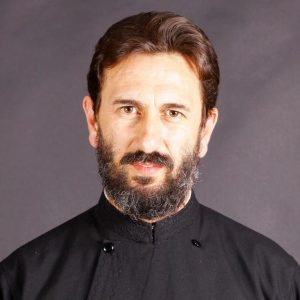
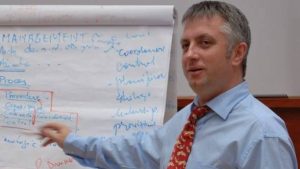



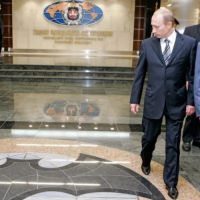

![marius-bostan-foto[1] marius-bostan-foto[1]](https://inliniedreapta.net/wp-content/uploads/elementor/thumbs/marius-bostan-foto1-qt9ywoo2b2lgv37b76h9qr5yo6db5vwzoxbuvd4e6o.jpg)


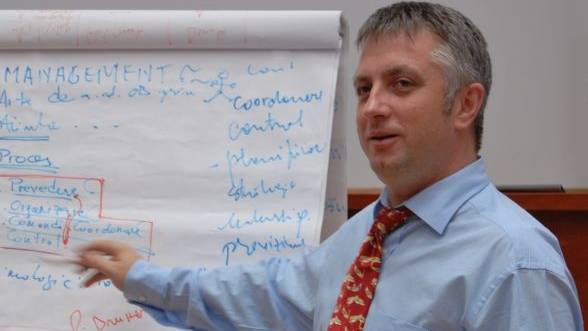
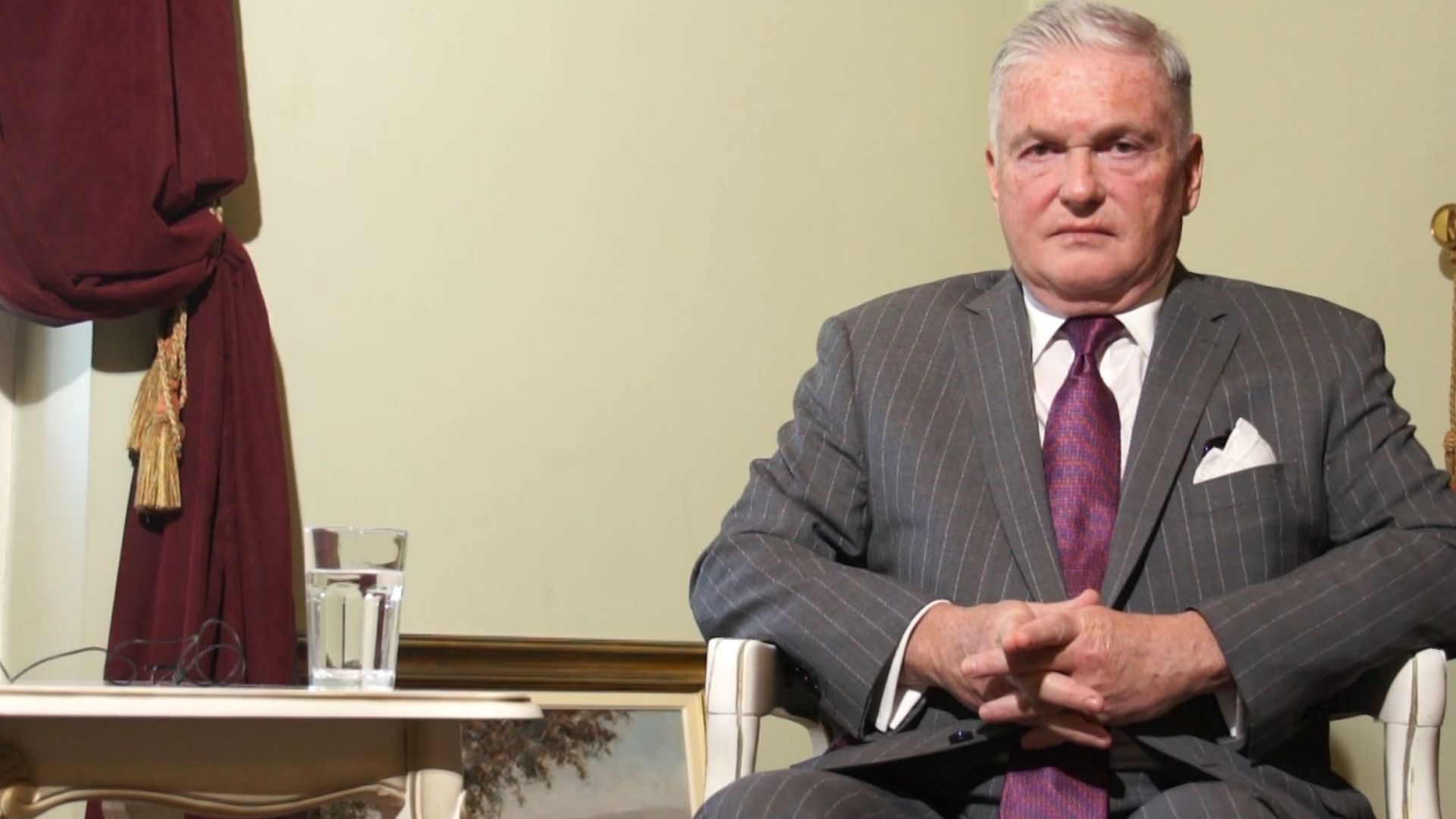

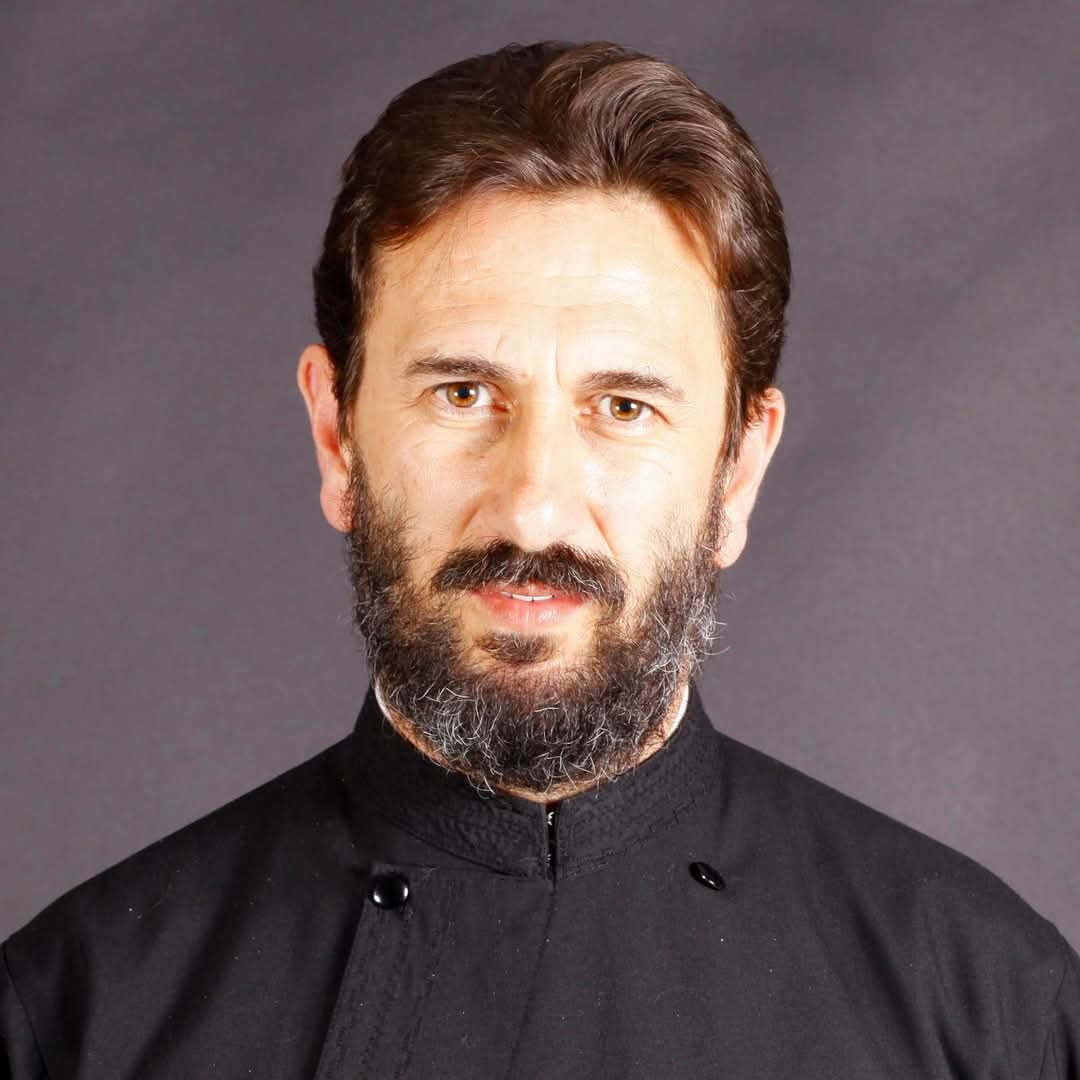



25 Comments
Liviu Crăciun
5 February 2011declaratiile lui omar suleiman (cu vreo luna inainte de intilnirea lui obama cu fratii):
http://www.guardian.co.uk/world/us-embassy-cables-documents/204990x
Cristina R.
5 February 2011emil:
Excelent articol.
O perspectiva de la unul care tocmai s-a intors din Egipt, Jesse Petrilla:
“Inside Egypt:
The revolution, a potential wolf in sheep’s clothingby Jesse Petrilla | FrontPage Magazine | February 1st, 2011
http://frontpagemag.com/2011/02/01/inside-egypt/2/
The pot finally came to a boil when on New Year’s Eve a suicide bomber ripped through parishioners at an Alexandria church, killing dozens of Coptic Christians. That same church was the site of another attack several years prior, when a jihadist entered and began stabbing church-goers while yelling “Allahu Akbar.” This is the fear that Christians in Egypt feel day to day. I personally visited this church prior to the attack, and met with many who told me the stories of how persecuted the Egyptian Coptics feel in their native land. Their IDs have a number two in the corner, while Muslims carry an ID with the number one. It is nearly impossible to get a permit to build a new church, while mosques are constantly being constructed. Human rights violations and police brutality are rampant, and a climate of corruption has reached every level of government.
The corruption in Egypt has grown for many years, and for many reasons. For example, the average monthly pay of a police officer is less than the average cost to rent a two-bedroom apartment in Cairo. Considering the fertility rate of the average Egyptian woman is greater than three, most officers have a family to take care of as well. This leads to a climate where bribes become a normal part of life. While there, I got used to police officers coming up to me and telling me I did something wrong, such as take a picture of something I wasn’t supposed to, and asking me to pay a nominal fine of about $10 – directly to them of course.
Indeed, there has been a great need for the Egyptian government to address the issue of human rights, the protection of the Christian minority, and the culture of corruption. The problem is, however, that the upheaval we are seeing in Egypt today is not about an outrage over the unfairness with which Christians and non-Muslims are treated. And while current protests may be about corruption and human rights, the tragedy is that the likely alternatives to the current regime are far worse than what has been in power.
There is a sinister undertone throughout Egypt. It is spreading throughout the country “like a cancer,” as it was described to me by Egyptian human rights activist Dr. Naguib Gabriel during my visit with him in Cairo. It is the cancer known as the Muslim Brotherhood, an organization which uses terror and intimidation in its ongoing jihad to take over the government of Egypt. This effort to conquer Egypt is just one piece of the pie in the global jihad by our enemies to establish an Islamic caliphate over the entire world, from Egypt to France, London to Dearborn Michigan, to small-town rural America. This fear has only intensified in recent days as the Muslim Brotherhood has developed a much more visible presence in the ongoing protests and has thrown its support behind informal opposition leader, Mohamed ElBaradei.
When Islamic terrorists attacked the church in Alexandria, the Christians, who make up 10% of the country, began protesting. They demanded more protection from Mubarak’s regime. Anti-Mubarak factions seized the opportunity, and the Brotherhood salivated at the prospect of filling in the void if Mubarak should fall. The Brotherhood openly calls for an Islamic theocracy in Egypt, led by Sharia (Islamic) law. If they seize power, the country would become the Sunni version of the Islamic Republic of Iran. Egypt under the Brotherhood would be a Taliban-style government on the border of Israel, and with control over the Suez Canal.
When we hear calls for free elections and democracy in Egypt, a theocracy under Sharia law would very likely result if such elections were to occur. Many politicians in the West fail to realize that democracy only works if the citizens of those nations have reached the level of respect for individual rights and democratic principles to handle it. Unfortunately, many in Middle East have certainly not reached that level of thought, and the cunning and sinister Muslim Brotherhood will use every tactic necessary to exploit the process in order to seize control, just like the Ayatollah and his followers did in Iran after the fall of the Shah in 1979.
The political nature of Islamic ideology makes it fundamentally incompatible with a true democratic form of government. The unfortunate reality is that the only relatively stable forms of government which have been proven to work in the Islamic world are secular “Kemal Ataturk style” dictatorships that force secularism on their people, and keep the extremists in check.
Voter intimidation by the extremists in an Egyptian election is common and easy. A member of the Brotherhood is easy to spot. They oftentimes have a beard, and generally have a bruise on their foreheads from hitting their head on the floor during prayer. Sometimes they even heat up a metal spoon in the fire and place it on their foreheads to accentuate the bruise. Sounds crazy to us in the West, but you see it on one out of every five men walking down the street in Cairo. The members of the Muslim Brotherhood can easily identify each other this way, which makes it easy to intimidate others at the polls when voting occurs. A Coptic priest shared with me how this practice has directly affected him: his church once organized buses to bring Christians to vote in a local election, only to have Brotherhood thugs armed with knives stop the Christians and turn them away.
There is little the Egyptian police will do about this. It is easy to become a cop, and the police force is filled with Brotherhood sympathizers.
The biggest hurdle standing in the way of the Muslim Brotherhood taking power is Hosni Mubarak and his followers. While the police may not always be loyal to him, the national military is, as well as those in his intelligence agency. (sublinierea mea)So the only way the Brotherhood could come to power would be through the guise of democratic reforms. Mubarak’s crackdown over the years on the Brotherhood, through imprisoning their leaders and fighting to diminish their power wherever possible, has been an ongoing battle in the nation for decades. Even his vice president pick, intelligence chief Omar Suleiman, was a message to the Brotherhood. It was Sueliman who put many of the Brotherhood’s leaders behind bars over the years.
The civil unrest in Egypt shows no signs of diminishing. Mubarak has just authorized now-Vice President Suleiman to speak with the opposition (which includes the Brotherhood), and a volatile struggle for power is under way. If Mubarak’s regime goes entirely, there will be little to stand in the way of an Islamist Republic of Egypt, and one hopes the policy-makers in Washington deeply understand this. ”
Andy McCarthy, de la NRO, nu crede in loialitatea absoluta a armatei fata de Mubarak:
“February 5, 2011 4:00 A.M.
Don’t Count on Egypt’s Army
We cannot trust Egypt’s military to combat Islamists.
‘My name is Khalid Islambouli,” the assassin thundered. “I have slain Pharaoh, and I do not fear death!” This was at an annual state parade in Cairo on October 6, 1981. Islambouli, swelling with a delirious pride, had just strafed the reviewing stand with bullets, killing Egyptian president Anwar Sadat and hurtling his nation into chaos.
That was the plan. Islambouli, like several of his coconspirators, was a Muslim Brotherhood veteran who’d drunk deep the incitements of the Ikhwan’s martyred leader, Sayyid Qutb, but lost patience with the organization’s Fabian approach to revolution. He’d joined Islamic Jihad, one of several splinter groups that would later be folded into al-Qaeda by another Brotherhood alum, Ayman Zawahiri.
They’d hoped to trigger an Islamic upheaval by “cutting off the head of the snake” and seizing power in the ensuing chaos. But apart from murdering the president, the plot failed. Power passed seamlessly to Sadat’s vice president, Hosni Mubarak, who cracked down brutally on the terrorists.
The story is worth remembering as chaos grips Egypt yet again. In the drama three decades ago, one tie beyond citizenship united all the major players — the villain, the victim, the heroes who put down the uprising, and the bureaucrat who emerged from obscurity to grab the autocratic reins he has yet to relinquish: They were all members of the Egyptian military.
With events on the ground shifting even faster than the Obama administration’s positions on them — though not quite as quickly as the sudden proliferation of Egypt experts — received wisdom holds that the one anchor of stability in the unfolding crisis is the military. It is said to be the only solid ground in Cairo’s cataclysm. Otherwise, the scene at Tahrir Square, depending on who is doing the describing and who is projecting which hopes and fears, is alternatively a tea party, a human-rights riot, or an explosion of Islamist rage.
It’s true enough that Egypt’s highly professional armed forces constitute the most revered institution in the country. Their professionalism has been purchased at a cost of nearly $40 billion from U.S. taxpayers since 1978, when Sadat made the peace with Israel that drove the jihadists to kill him. Thus, when analysts herald the stability of Egypt’s military — fortified by a generation of training and cooperative relations with U.S. warriors — the implication is that this will be to our benefit. Their patriotism will prevent Mubarak’s worst excesses and usher him out the door, and their pro-Western bent will guard against that worst of all worlds: the very sharia state Khalid Islambouli and his fellow jihadists sought to impose 30 years ago.
Even if everything we’d like to believe about the Egyptian military were true, the dream of secular stability would be very difficult to realize. Thanks to the West’s conflating of democratic processes with democratic culture, the crisis is careering toward a premature “settlement” by popular elections, to be held no later than September. Unfortunately, that is years before civil society — stunted by the powerful influence of fundamentalist Islam, the constant threat of terrorism, and Mubarak’s iron-fisted rule — can evolve sufficiently for real self-government.
A transitional military coup would be best for all concerned, but it is very unlikely to happen. The democracy fetish of transnational progressives won’t allow it. That opens the field for the most organized, best disciplined faction, the Muslim Brotherhood. With the administration having finally decided to shove Mubarak under the bus, the Brotherhood and its beard, Mohammed ElBaradei, are hovering.
Let’s assume, for argument’s sake, that Egypt’s armed forces are capable of thwarting the Islamist rise. The question is: Will they?
Khalid Islambouli was a first lieutenant in the army. This station enabled him to be assigned to the parade held that fateful day — an annual event at which the nation celebrates its great “victory” in the Yom Kippur War of 1973. (Yes, the same war the home team lost to Israel; this is Egypt we’re talking about.) How, you may wonder, does a jihadist terrorist become a military officer and get close enough to kill the Egyptian president, widely known at the time to be a marked man?
Very simple: The Egyptian military is a reflection not of its American trainers but of Egyptian society. Its popularity in the country owes in large part to the fact that almost all able-bodied men are conscripted to serve for one to three years. Its uppermost ranks, from which rose Egypt’s presidents — Mubarak, Sadat, and modern Egypt’s founder, Gamal Abdel Nasser — are today largely pro-American. The rank and file, however, have always included thousands of Muslim fundamentalists and radicals. Unquestionably, military service is a leveling experience, creating a common bond that unites different social strata. We should not overstate its effect, though. The military features all the complexity and divisions of Egypt at large.
Since spearheading Nasser’s coup over a half century ago, the military has followed more than it has led. Nasser dragged it from the British-backed monarchy into the Soviet orbit. Sadat moved it into America’s column. Under Mubarak, it has maintained a cold peace with Israel, but it would be foolish to think new leadership could not shift the military back to hostilities with a nation millions of Egyptians revile — a nation with which Egypt fought four wars between 1948 and 1973.
In the last 20 years, two former Egyptian military officers have come to prominent attention in the United States. The first was Emad Salem, a pro-American Muslim, who volunteered to infiltrate the New York terror cell formed by Omar Abdel Rahman, the Egyptian “Blind Sheikh” who had issued the fatwa authorizing Sadat’s murder, who called incessantly for the killing of Mubarak, and whose followers bombed the World Trade Center in 1993. Without his help, the FBI could not have disrupted these jihadists, several of whom were arrested in June 1993 while mixing explosives for a planned bombing spree against the Lincoln and Holland Tunnels, the United Nations complex, and a number of U.S. government targets.
The second was a contemporary of Salem’s, Ali Mohammed. He infiltrated the American military on behalf of Islamic Jihad, stealing sensitive files that he took to New York, where he used them to help train the Blind Sheikh’s cell. Later, he became al-Qaeda’s top security specialist, helped bin Laden move his headquarters from Sudan to Afghanistan, forged the terror network’s East African cells, and drew up the plans those cells later used to bomb the American embassy in Nairobi.
In Cairo, the Egyptian military is our last, best hope. We shouldn’t be overconfident.”
McCarthy e procurorul din cazul “seicului orb” egiptean Omar Abdul Rahman, care a orchestrat atacul asupra World Trade Center din 1993 (cinci morti, daca-mi aduc bine aminte, si nenumarati raniti), un preludiu la 9/11/2001, “individ” care sufla, maninca, e ingrijit medical inca, in pirnaie, pe banii contribuabililor pe care-i condamnase la moarte.
Scriu “individ” ca sa nu recurg la alte cuvinte …
Revin.
floare
5 February 2011……….americanii,Robert Kagan….se spune ca ; singurul lucru care s-a invatat din istorie,este “ca niciodata ,nimeni n-a invatat nimic” .
Cristina R.
5 February 2011Umilirea totala a Egiptului in razboiale contra Israelului, in special in Razboiul de 6 Zile (1967) si cel din Yom Kippur (1973), apasa greu mentalul arab egiptean, care se misca, etern, intre polii onoare-rusine/umilinta, chiar si pentru generatiile care nu se nascusera inca, reflex al onoarei tribale codificata de Mo/Sharia. Se stie ca Nasser, un dictator iesit din laboratoarele KB-ului, ca si teroristul Arafat, a refuzat sa se declare invins, proclamind victoria asupra evreilor in ciuda realitatii devastatoare.
Boborul egiptean “profund” isi doreste razbunarea umilintelor suferite la mina evreilor israelieni si a Americii mai inainte de orice.
O analiza a “mintii arabului ” din perspectiva unui colonel american care a instruit armate de arabi:
http://www.unc.edu/depts/diplomat/AD_Issues/amdipl_17/articles/deatkine_arabs1.html
Lectura buna. Eseul e pura delectare ‘telectuala.
“Leadership may be the greatest weakness of Arab training systems. [A] sergeant first class in the U.S. Army has as much authority as a colonel in an Arab army. . . . A veteran of the Pentagon turf wars will feel like a kindergartner when he encounters the rivalries that exist in the Arab military headquarters.”
The author, a retired U.S. Army colonel, draws upon many years of firsthand observation of Arabs in training to reach conclusions about the ways in which they go into combat. His findings derive from personal experience with Arab military establishments in the capacity of U.S. military attache and security assistance officer, observer officer with the British-officered Trucial Oman Scouts (the security force in the emirates prior to the establishment of the UAE), as well as some thirty years of study of the Middle East.~ Ed.
ARABIC-SPEAKING ARMIES have been generally ineffective in the modern era. Egyptian regular forces did poorly against Yemeni irregulars in the 1960s. Syrians could only impose their will in Lebanon during the mid-1970s by the use of overwhelming weaponry and numbers. Iraqis showed ineptness against an Iranian military ripped apart by revolutionary turmoil in the 1980s and could not win a three-decades-long war against the Kurds. The Arab military performance on both sides of the 1990 Kuwait war was mediocre. And the Arabs have done poorly in nearly all the military confrontations with Israel. Why this unimpressive record? There are many factors — economic, ideological, technical — but perhaps the most important has to do with culture and certain societal attributes which inhibit Arabs from producing an effective military force.
False starts
Including culture in strategic assessments has a poor legacy, for it has often been spun from an ugly brew of ignorance, wishful thinking, and mythology. Thus, the U.S. Army in the 1930s evaluated the Japanese national character as lacking originality and drew the unwarranted conclusion that that country would be permanently disadvantaged in technology. Hitler dismissed the United States as a mongrel society and consequently underestimated the impact of America’s entry into the war. American strategists assumed that the pain threshold of the North Vietnamese approximated our own and that the air bombardment of the North would bring it to its knees. Three days of aerial attacks were thought to be all the Serbs could withstand; in fact, seventy-eight days were needed.
As these examples suggest, when culture is considered in calculating the relative strengths and weaknesses of opposing forces, it tends to lead to wild distortions, especially when it is a matter of understanding why states unprepared for war enter into combat flushed with confidence. The temptation is to impute cultural attributes to the enemy state that negate its superior numbers or weaponry. Or the opposite: to view the potential enemy through the prism of one’s own cultural norms.
It is particularly dangerous to make facile assumptions about abilities in warfare based on past performance, for societies evolve and so does the military subculture with it. The dismal French performance in the 1870 Franco-Prussian war led the German high command to an overly optimistic assessment prior to World War I. Then tenacity and courage of French soldiers in World War I lead everyone from Winston Churchill to the German high command vastly to overestimate the French army’s fighting abilities. Israeli generals underestimated the Egyptian army of 1973 based on Egypt’s hapless performance in the 1967 war.
Culture is difficult to pin down. It is not synonymous with an individual’s race nor ethnic identity. The history of warfare makes a mockery of attempts to assign rigid cultural attributes to individuals — as the military histories of the Ottoman and Roman empires illustrate. In both cases it was training, discipline, esprit, and élan which made the difference, not the individual soldiers’ origin. The highly disciplined and effective Roman legions, for example, recruited from throughout the Roman Empire, and the elite Ottoman Janissaries (slave soldiers) were Christians forcibly recruited as boys from the Balkans.
The role of culture
These problems notwithstanding, culture does need to be taken into account. Indeed, awareness of prior mistakes should make it possible to assess the role of cultural factors in warfare. John Keegan, the eminent historian of warfare, argues that culture is a prime determinant of the nature of warfare. In contrast to the usual manner of European warfare, which he terms “face to face,” Keegan depicts the early Arab armies in the Islamic era as masters of evasion, delay, and indirection. Examining Arab warfare in this century leads to the conclusion that the Arabs remain more successful in insurgent, or political, warfare — what T. E. Lawrence termed “winning wars without battles.” Even the much-lauded Egyptian crossing of the Suez in 1973 at its core entailed a masterful deception plan. It may well be that these seemingly permanent attributes result from a culture that engenders subtlety, indirection, and dissimulation in personal relationships.
Along these lines, Kenneth Pollock concludes his exhaustive study of Arab military effectiveness by noting that “certain patterns of behavior fostered by the dominant Arab culture were the most important factors contributing to the limited military effectiveness of Arab armies and air forces from 1945 to 1991.” These attributes included over-centralization, discouraging initiative, lack of flexibility, manipulation of information, and the discouragement of leadership at the junior officer level. The barrage of criticism leveled at Samuel Huntington’s notion of a “clash of civilizations” in no way lessens the vital point he made — that however much the grouping of peoples by religion and culture rather than political or economic divisions offends academics who propound a world defined by class, race, and gender, it is a reality, one not diminished by modern communications.
But how does one integrate the study of culture into military training? At present, it has hardly any role. Paul M. Belbutowski, a scholar and former member of the U.S. Delta Force, succinctly stated a deficiency in our own military education system: “Culture, comprised of all that is vague and intangible, is not generally integrated into strategic planning except at the most superficial level.” And yet it is precisely “all that is vague and intangible” that defines low-intensity conflicts. The Vietnamese communists did not fight the war the United States had trained for, nor did the Chechens and Afghans fight the war the Russians prepared for. This entails far more than simply retooling weaponry and retraining soldiers. It requires an understanding of the cultural mythology, history, attitude toward time, etc.; and it demands a more substantial investment in time and money than a bureaucratic organization is likely to authorize.
Mindful of walking through a minefield of past errors and present cultural sensibilities, I offer some assessments of the role of culture in the military training of Arabic-speaking officers. I confine myself principally to training for two reasons:
• First, I observed much training but only one combat campaign (the Jordanian Army against the Palestine Liberation Organization in 1970).
• Secondly, armies fight as they train. Troops are conditioned by peacetime habits, policies, and procedures; they do not undergo a sudden metamorphosis that transforms civilians in uniform into warriors. General George Patton was fond of relating the story about Julius Caesar, who “in the winter time. . . so trained his legions in all that became soldiers and so habituated them to the proper performance of their duties, that when in the spring he committed them to battle against the Gauls, it was not necessary to give them orders, for they knew what to do and how to do it.”
Information as power
In every society information is a means of making a living or wielding power, but Arabs husband information and hold it especially tightly. U.S. trainers have often been surprised over the years by the fact that information provided to key personnel does not get much further than them. Having learned to perform some complicated procedure, an Arab technician knows that he is invaluable so long as he is the only one in a unit to have that knowledge; once he dispenses it to others he no longer is the only font of knowledge and his power dissipates. This explains the commonplace hoarding of manuals, books, training pamphlets, and other training or logistics literature.
On one occasion, an American mobile training team working with armor in Egypt at long last received the operators’ manuals that had laboriously been translated into Arabic. The American trainers took the newly minted manuals straight to the tank park and distributed them to the tank crews. Right behind them, the company commander, a graduate of the armor school at Fort Knox and specialized courses at the Aberdeen Proving Grounds ordnance school, promptly collected the manuals from those crews. Questioned why he did this, the commander said that there was no point in giving them to the drivers because enlisted men could not read. In point of fact, he did not want enlisted men to have an independent source of knowledge. Being the only person who could explain the fire control instrumentation or bore sight artillery weapons brought prestige and attention.
In military terms this means that very little cross-training is accomplished and that, for instance in a tank crew, the gunners, loaders and drivers might be proficient in their jobs but are not prepared to fill in should one become a casualty. Not understanding one another’s jobs also inhibits a smoothly functioning crew. At a higher level it means that there is no depth in technical proficiency.
Education Problems
Training tends to be unimaginative, cut and dried, and not challenging. Because the Arab educational system is predicated on rote memorization, officers have a phenomenal ability to commit vast amounts of knowledge to memory. The learning system tends to consist of on-high lectures, with students taking voluminous notes and being examined on what they were told. (It also has interesting implications for a foreign instructor, whose credibility, for example, is diminished if he must resort to a book.) The emphasis on memorization has a price, and that is in diminished ability to reason or engage in analysis based upon general principles. Thinking outside the box is not encouraged; doing so in public can damage a career. Instructors are not challenged and neither, in the end, are students.
Head-to-head competition among individuals is generally avoided, at least openly, for it means that someone wins and someone else loses, with the loser humiliated. This taboo has particular import when a class contains mixed ranks. Education is in good part sought as a matter of personal prestige, so Arabs in U.S. military schools take pains to ensure that the ranking member, according to military position or social class, scores the highest marks in the class. Often this leads to “sharing answers” in class — often in a rather overt manner or in junior officers concealing scores higher than those of their superiors.
American military instructors dealing with Middle Eastern students learn to ensure that, before directing any question to a student in a classroom situation, particularly if he is an officer, the student does possess the correct answer. If this is not assured, the officer may feel he has been deliberately set up for public humiliation. In the often-paranoid environment of Arab political culture, he may then become an enemy of the instructor, and his classmates will become apprehensive about their also being singled out for humiliation — and learning becomes impossible.
Officers vs. soldiers
Arab junior officers are well trained on the technical aspects of their weapons and tactical know-how, but not in leadership, a subject given little attention. For example, as General Sa`d ash-Shazli, the Egyptian chief of staff, noted in his assessment of the army he inherited prior to the 1973 war, they were not trained to seize the initiative or volunteer original concepts or new ideas. Indeed, leadership may be the greatest weakness of Arab training systems. This problem results from two main factors: a highly accentuated class system bordering on a caste system, and lack of a non-commissioned-officer development program.
Most Arab armies treat enlisted soldiers like sub-humans. When the winds in Egypt one day carried biting sand particles from the desert during a demonstration for visiting U.S. dignitaries, I watched as a contingent of soldiers marched in and formed a single rank to shield the Americans; Egyptian soldiers, in other words, are used on occasion as nothing more than a windbreak. The idea of taking care of one’s men is found only among the most elite units in the Egyptian military. On a typical weekend, officers in units stationed outside Cairo will get in their cars and drive off to their homes, leaving the enlisted men to fend for themselves by trekking across the desert to a highway and flag down busses or trucks to get to the Cairo rail system. Garrison cantonments have no amenities for soldiers. The same situation, in various degrees, exists elsewhere in the Arabic-speaking countries — less so in Jordan, even more so in Iraq and Syria. The young draftees who make up the vast bulk of the Egyptian army hate military service for good reason and will do almost anything, including self-mutilation, to avoid it. In Syria the wealthy buy exemptions or, failing that, are assigned to noncombatant organizations. As a young Syrian told me, his musical skills came from his assignment to a Syrian army band where he learned to play an instrument. In general, the militaries of the Fertile Crescent enforce discipline by fear; in countries where a tribal system still is in force, such as Saudi Arabia, the innate egalitarianism of the society mitigates against fear as the prime mover, so a general lack of discipline pervades.
The social and professional gap between officers and enlisted men is present in all armies, but in the United States and other Western forces, the non-commissioned officer (NCO) corps bridges it. Indeed, a professional NCO corps has been critical for the American military to work at its best; as the primary trainers in a professional army, NCOs are critical to training programs and to the enlisted men’s sense of unit esprit. Most of the Arab world either has no NCO corps or it is non-functional, severely handicapping the military’s effectiveness. With some exceptions, NCOs are considered in the same low category as enlisted men and so do not serve as a bridge between enlisted men and officers. Officers instruct but the wide social gap between enlisted man and officer tends to make the learning process perfunctory, formalized, and ineffective. The show-and-tell aspects of training are frequently missing because officers refuse to get their hands dirty and prefer to ignore the more practical aspects of their subject matter, believing this below their social station. A dramatic example of this occurred during the Gulf War when a severe windstorm blew down the tents of Iraqi officer prisoners of war. For three days they stayed in the wind and rain rather than be observed by enlisted prisoners in a nearby camp working with their hands.
The military price for this is very great. Without the cohesion supplied by NCOs, units tend to disintegrate in the stress of combat. This is primarily a function of the fact that the enlisted soldiers simply do not have trust in their officers. Once officers depart the training areas, training begins to fall apart as soldiers begin drifting off. An Egyptian officer once explained to me that the Egyptian army’s catastrophic defeat in 1967 resulted from of a lack of cohesion within units. The situation, he said, had only marginally improved in 1973. Iraqi prisoners in 1991 showed a remarkable fear of and enmity toward their officers.”
Cristina R.
5 February 2011P.S.
Pariaza cineva pe aparitia curinda a unui Hasek/Svejk arab??
calehari
5 February 2011Dupa ce l-am citit de cateva ori , nu m-am putut abtine sa nu ma gandesc , ca putini indraznesc sa ridice stacheta atat de sus si doar cativa reusesc sa si o treaca . Sfinte Dumnezeule , ce salt !
Pataphyl (Andrei R.)
5 February 2011Panseluța
Cred că specialistul nostru Nambăr Uan e Bogdan Calehari, are mînă bună, experiență, fler.
Eu m-aș băga poate, dar ar trebui să aflu dacă Ibn Ali-Švejk are GPS care să-l ajute să se învîrtească în ocol perpetuu în drum spre České Budějovice fără să nimerească!
Pataphyl (Andrei R.)
5 February 2011P.S. Șansele sînt încă și mai mici să apară un nou Ostap Bender (să nu uităm că se autodefinea ca fiu de supus turc), căci ar trebui pe lîngă nesimțire nativă și un imens know-how de sorginte sovietică, pe lîngă care taqyya e curs pentru preșcolari ????
Cristina R.
5 February 2011Pata:
Super! Am ris copios. Multzam, prietene.
Nu-i uita pe cadetul Biegler si locotenentul 2 Dub ….
Pataphyl (Andrei R.)
5 February 2011Panseluțo, e plin de Biegleri și de Dubi descreierisiți pe la ei pe-acolo ???? În rest nu, n-au nici măcar Palivec-i căci berea e prohibită, iar pe Madam Müllerová o țin sub pătură cernită. Cît despre preotul Katz, ce să mai vorbim?… ????
Pataphyl (Andrei R.)
5 February 2011P.S. Și știi de ce n-o să apară? Pentru că MoMo a decretat că umorul e prohibit căci e supărător și nociv în religia păcii™, problemele spirituale au fost bătute în cuie deci nu mai rămîne loc de spirit, nici în glumă, ca să zic așa. Cred că de asta toată tărășenia e replicată de cinci ori pe zi, nu care cumva să deraieze vreunul. Starea de înțepenire respectivă mă duce cu gîndul la Reagan care zicea Status quo, you know, is Latin for ‘the mess we’re in’
Cristina R.
5 February 2011Pata:
Da, gind la gind, exact.
Costin A.
5 February 2011Communists, Socialists Working With Muslim Brotherhood
Cristina R.
5 February 2011Rafik Jaber, in propriile sale cuvinte si cu intreaga sa capacitate mintala (pe care si-a pus pata obsesia eterna a sexualitatii femeilor arabe care purcede de la MoMo – ca si incoerenta psihotica a lui MoMo si urmasilor) :
Silvapro
5 February 2011Nu inteleg sintactica propozitiei de mai sus a lui Rafik Jaber” I want it to encourage my soldiers, by raping Arab girls and the Palestinian women it is late for our (???) Jews”. Cine sa violeze araboicele? Ce e tirziu pentru evrei, si ce leagatura este intre cele doua afirmatii?
Sint infioratoare aceste discursuri, e pur si simplu ca pe timpul lui Hitler. Nu vad diferenta intre continuturile lor. Si cum este admisa asa o intrunire? Nu mai sint legi pe lumea asta?
Arabii peste tot in lume striga “Moarte evreilor” sau incita la distrugerea Israelului Eu una n-am vazut aceleasi declaratii sa le urle evreii pe toate drumurile. Pai daca in Isael evreii s-ar intruna si ar deschide gura impotriva arabilor ca in filmul de mai sus si altele la fel, intr-un loc public sau chiar nepublic, imediat ar fi bagati la apa. Atunci cum poate cineva cu scaun la cap sa afirme ca Israelul si evreii sint fascisti si nazisti? Cind e clar cine sint nazistii.
Pataphyl (Andrei R.)
5 February 2011Silvapro
Citește articolul indicat de Costin din the Right Scoop (dă click pe link-ul de la comentariul #13). Ce e de spaimă nu e că indivizi ca acel Rafik spun ce spun, ci că “oameni de presă” reputați ca numitul Chris Matthews creditează asemenea orori! De vină-i Glenn Beck (ca de obicei), dacă “îndrăznește” să observe că frăția MoMo și progresiștii CoCo(muniști) dănțuiesc această deșănțată horă a ur(in)ii ????
ca numitul Chris Matthews creditează asemenea orori! De vină-i Glenn Beck (ca de obicei), dacă “îndrăznește” să observe că frăția MoMo și progresiștii CoCo(muniști) dănțuiesc această deșănțată horă a ur(in)ii ????
Silvapro
5 February 2011Ha, ha… M-ai facut sa rid. Imi place ca in afara de toate celelte calitati, aveti si simtul umorului pe acest site.
Au fost replici (nu mai sint sigura daca sub un articol co flotila, sau altul) la care chiar am ris cu voce tare, de una snigura.
Costin A.
5 February 2011ce bine
le zice
chomsky
NOAM CHOMSKY HOPES FOR EGYPTIAN STYLE PROTESTS IN AMERICA?
Pataphyl (Andrei R.)
5 February 2011Costine, eu rămîn on topic, la mine e încă 6 februarie, deci dacă vrei neomu ciomu(sky), na:
Noam Chomsky: “Reagan didn’t exist” – The New World Order Part 8 (1991)
Pataphyl (Andrei R.)
5 February 2011Pst, Costin @18 (sper că n-ai adormit), n-am avut răbdare să ascult: Adică Ciomusky vrea să-l dea jos boboru’ pe bampiru’ Hussein MoMoBarak? ???? ???? ????
Costin A.
5 February 2011eu nu inteleg ce il motiveaza pe omul asta. ce te poate face sa spui 3 minciuni la fiecare 2 fraze timp de zeci si zeci si zeci de ani?
Pataphyl (Andrei R.)
5 February 2011Ți-am zis doar că i neom ciom!
dr pepper
5 February 2011apropos de chomsky si al sau erou, carter:
Jimmy Carter’s $5M Israel Lawsuit
Vlad M.
5 February 2011dr pepper
5 February 2011Exclusive: Saudis told Obama to back Mubarak
arabia saudita, pe langa egipt reprezentau pana nu demult unii din cei mai importanti aliati ai americii din lumea araba ai orientului mijlociu.
mubarak, a trimis trupe in primul razboi din golf impotriva lui saddam pentru eliberarea kuweitului.
ca si in articolul semnat de pacepa din AT, se pare ca America isi pierde aliatii pe zi ce trece.